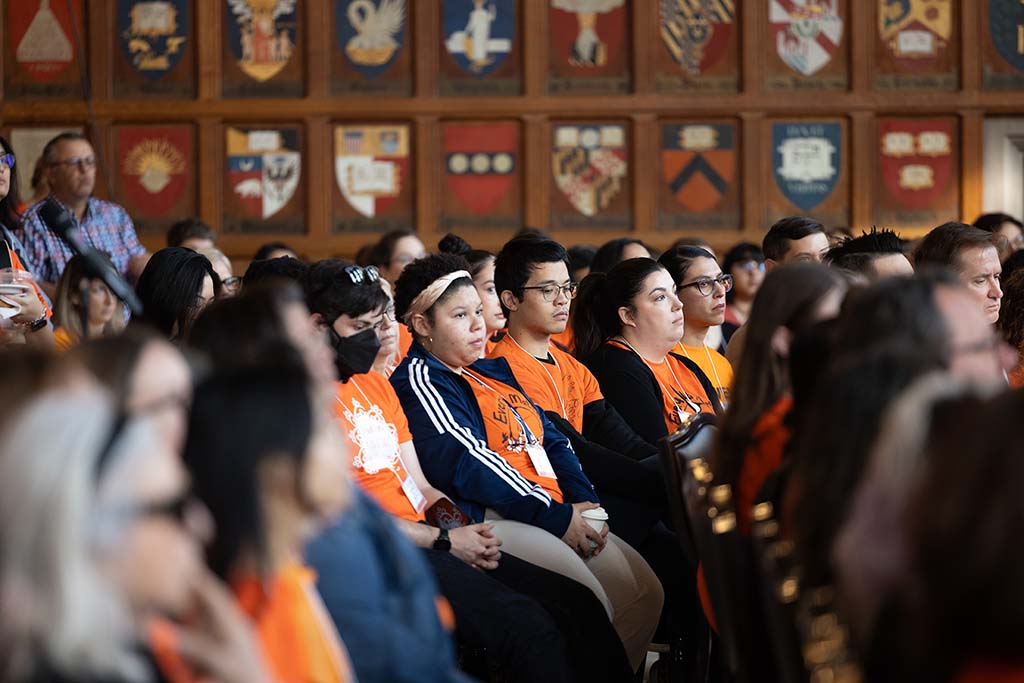Reflecting on Orange Shirt Day: A Journey of Awareness and Reconciliation at U of T

On September 30, the University of Toronto held an annual commemoration for Orange Shirt Day and the National Day for Truth & Reconciliation. This year, the keynote address was delivered by Dr. Shirley Cheechoo, a remarkable artist who made history as the first First Nations woman to write, produce, direct, and act in a feature-length film from Canada.
Personal reflection
Hearing her story first-hand made the history of residential schools feel incredibly real and immediate. As an international student, this experience was especially eye-opening for me. I came to Canada with little knowledge of its Indigenous history. Attending this event helped me recognize the depth of trauma that Indigenous peoples have endured, as well as their continued resilience. It also expanded my knowledge and deepened my sense of responsibility to actively listen, learn, and engage in meaningful reconciliation efforts as part of my journey here in Canada.
Shirley Cheechoo, Cree actor, artist, filmmaker and founder of Weengushk Film Institute“Calling us warriors, you empower us. You empower our children and you empower communities across the country.”
Why these days matter
For over a century, Indigenous children were forcibly taken from their families and subjected to violence and neglect. These days matter because they are a public commemoration of the tragic history and ongoing impacts of residential schools. It spreads awareness and educates the public about this dark chapter in Canada’s history. More than just remembering, these days create a space for those involved in the residential school system to share their stories and experiences.
Honouring the past
National Day for Truth and Reconciliation, colloquially known as Orange Shirt Day, honours the victims and survivors of the residential school system, their families and communities. This day provides an opportunity to reflect on the painful history of a system that sought to erase the identity, culture and language of Indigenous peoples in Canada.
The orange shirt is a powerful symbol of solidarity, representing a commitment to ensure that every child matters. Orange was chosen in honour of Phyllis Webstad, a St. Joseph Mission Residential School survivor. On her first day, she was stripped of her orange shirt, which her grandmother had gifted her, and forced to wear the institutional uniform.
U of T’s role in reconciliation
A core part of the University of Toronto’s values is building a community committed to equity, diversion, inclusion, access, and Indigenous perspectives. U of T actively works towards reconciliation by engaging with its Indigenous community, offering Indigenous student support programs, and fostering innovative research related to Indigenous studies.
Be a catalyst for change
As students, you play a vital role in the journey towards reconciliation. By participating in meaningful dialogue and amplifying Indigenous voices, you contribute to a more inclusive community at U of T, thereby supporting reconciliation efforts. Start by educating yourself about Indigenous histories and participating in related on-campus events or trainings. You can also help support Indigenous-led initiatives and advocate for inclusive policies.
By Cammyn Lim (BCom ’26) | October 3, 2024
